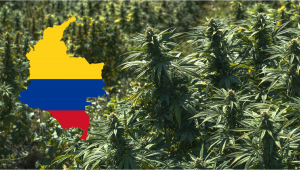Colombia Legalizes the Export of Cannabis, Strengthening the Sector

Last week, the government of Colombia approved the law that gives green light to the export of medical cannabis to eligible countries. The legislation is hailed as the most significant milestone in cannabis reform since 2015 when the Latin American country legalized the production and sale of medical marijuana.
The Law Will Streamline Application and Approval of Cannabis Exportation
Despite the robust legal framework regulating the cultivation, processing, and sale of marijuana products for therapeutic purposes, Colombia’s legal cannabis industry has long lamented the absence of guidelines for export approval.
The new regulations signed into law by the country’s president Ivan Duque on July 23d put an end to any ambiguity and will facilitate the process of issuing export permissions to domestic and international marijuana producers. Besides, it will allow the use of cannabinoids in beverages, edibles, as well as skin care and other beauty products.
According to President Duque, the cannabis sector in Latin America will soon be worth $6 billion, and Colombia—thanks in part to the new legislation—is poised to play a big role in the international market.
The Need for Reform Recognized by Both the Society and the Officials
Although the cultivation of cannabis and its non-psychoactive cousin, hemp, has been ubiquitous in the country for centuries, it’s recreational use was forbidden. It was only in 1994 that Colombia’s Supreme Court ruled that penalties were unconstitutional, thereby decriminalizing personal consumption.
In 2012, the government approved the law decriminalizing the possession of up to 20 grams (0.7 oz) of cannabis for personal use. A year earlier, the then president, Juan Manuel Santos, stated that he would even welcome legalization if it could put an end to drug trafficking and take away profits from violent criminals.











Comments